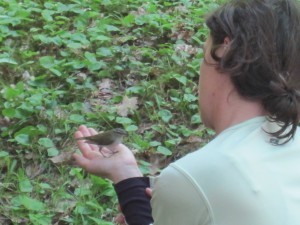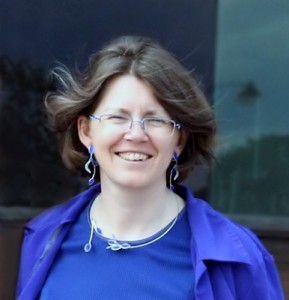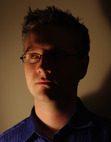Jonathan Ball's Blog, page 66
October 3, 2012
What are you working on right now, Pearl Pirie?
Some things are incoming. I’m wrestling what topic I want to do an essay on for a VerseFest fundraiser of talks for the Factory Reading Series with Cameron Anstee and Stephen Brockwell Nov 15th. I’m trying to pin down details of readings to add to the southern Ontario jaunt. So far I’ll be a Messagio Galore groupie for the Windsor and St. Cats readings Oct 19 and 21 and I’ll read with Grey Borders Oct 24th and probably a reading in London Oct 23rd. I’ll probably be reading from the last of the second print run of the In Air/Air Out to raise money for the Guatemala Stove Project. Some things are getting settled. I’m getting the workshop facilitators set up for the Tree Seed Workshops for the spring 2013 session.
Some things I’m working on are long term, like the 40-word-year project that’s over 1100 entries in. I’m exploring what compressions and shapes of lines and reconciling the room in the head of autobiography. I’m closing in on 2000th posts of vegetarian and vegan meals. Daily I’m writing new poems whether I want to or not. They’re pushy buggers.
And I’m divvying up poems into 2 manuscript streams that hopefully will be out the door early next year and more the year after, depending on how the poems cooperate with each other. I’m also looking for any patterns that might cleave into chapbook lengths. At the same time I’m pricing paper stocks and test-burning patches on them to do covers for the new phafours press chapbook “Where there’s fire”. It’s a short anthology chapbook of one of the writing groups I’m in: the Rubies.We’ll do a group-binding session of the chapbooks sometime in October, which may be at least as much fun as that sounds. I’m hoping that will be out in November in time for the Ottawa Small Press Fair, November 17th.
Pearl Pirie has been organizing the Tree Seed Workshop Series for the Tree Reading Series since 2009. She is always on the lookout for new facilitators to bend their poetic passion to mentor local writers there. She tweets, photographs and verbs about town. Her blogs include pesbo, Humanyms, and Eaten Up. Her poetry collections include Thirsts (Snare, 2011) Mammals of Hoarfrost (Corrupt Press, 2011), Between Stations (epiphany press, 2011), been shed bore (Chaudiere, 2010) and over my dead corpus (AngelHouse, 2010). She is working on a couple full-length manuscripts. Her author site is www.pearlpirie.com
October 2, 2012
Toronto Launch for THE POLITICS OF KNIVES
*** Press Release from Coach House Books ***
On Thursday, October 4, Torontonians (and anyone else who can make it to the city that night) are invited to attend the shocking exposé of our fall titles at The Garrison (1197 Dundas St. West), near the corner of Dundas and Ossington. The fall edition of the Coach House launch will be hotter than Quill & Quire’s annual ‘Best and Worst Beach Bodies’ issue. Be there to see our Fall 2012 authors get the red carpet treatment!
Write your own National Enquirer-style CanLit headline and submit to mail@chbooks.com. The winner will receive a trophy and Coach House gift package at October 4 launch!
With the Fall 2012 launch, we unleash seven new shocking titles:
- Cordelia Strube’s new novel, Milosz
- Spencer Gordon’s debut short fiction collection, Cosmo
- Jocelyn Saucier’s novel And the Birds Rained Down, translated by Rhonda Mullins
- Jonathan Ball’s new poetry collection, The Politics of Knives
- Matthew Tierney’s new poetry collection, Probably Inevitable
- Sarah Pinder’s debut poetry collection, Cutting Room
- Mathew Henderson’s debut poetry collection, The Lease
Short readings will be followed by music and cavorting. Authors will be available for book signings and conversation following the on-stage entertainment.
Coach House Fall 2012 Launch
Thursday, October 4, 2012
featuring readings by Cordelia Strube, Spencer Gordon, Rhonda Mullins, Jonathan Ball, Matthew Tierney, Sarah Pinder and Mathew Henderson
The Garrison, 1197 Dundas St. West
(at Ossington)
Doors at 8 p.m., readings at 8:45 p.m.
Free
September 29, 2012
Jean Baudrillard, SF writer
Science fiction has always been attracted by speeds greater than that of light. Far stranger, however, would be the register of lower speeds to which light itself could descend.
. . . What if light slowed, dropping to “human” speeds? What if it bathed us in a slow-motion flux of images, until it was slower than our own movement?
We would then need to generalize from the case of light reaching us from stars that have long ceased to exist — their image is still crossing light-years to get to us. If light was infinitely slower, a lot of things, even the closest ones, would have already suffered the fate of those stars: we would see them, and they’d be here, but they would no longer be there. Wouldn’t this be the case for the real itself: something whose image is still coming at us, but which no longer exists? We can make the analogy with mental objects and the mental ether.
Or supposing light were very slow, could bodies approach us faster than their image — then what would happen? They would rub into us without our seeing them coming. We could further imagine, unlike our universe, where slow bodies move at prodigious speeds, except light itself, which would be very slow. Total chaos, no longer regulated by the instantaneity of luminous messages.
Light like the wind, with variable speeds, even dead calms, where no image could get to us from the zones affected.
Light like perfume: differing according to the body, scarcely diffusing outside of an immediate environment. A sphere of luminous messages attenuating as they go. The images of the body scarcely propagate beyond a certain luminous territory: beyond that, it no longer exists.
Or, also, light moving with the slowness of continents, continental plates, one slipping over the other, and thus provoking shocks that would distort all our images and visions of space.
. . . So slow that it could curl up on itself and even stop totally in its progression, light could lead to a total suspension of the universe.
From FATAL STRATEGIES by Jean Baudrillard (Trans. Philippe Beitchman and W. G. J. Niesluchowski. Los Angeles: Semiotext(e). 2008 [1983]. 37-39.)
by Jean Baudrillard (Trans. Philippe Beitchman and W. G. J. Niesluchowski. Los Angeles: Semiotext(e). 2008 [1983]. 37-39.)
Poets Touching Trees
The ever-entertaining blog Poets Touching Trees interviewed me in their own unique way.
September 27, 2012
Interview in Uptown
Uptown writer Jared Story interviewed me about The Politics of Knives:
“Obviously we notice violence when someone punches someone but we don’t notice violence as much when we tell the story of our day,” he says. “When we’re telling the story of our day we shift things into particular order that has particular narrative structure that in some ways is an act of conceptual violence. It really invalidates other manners of telling that story and has particular political biases and so on.”
September 25, 2012
What are you working on right now, Sandra Ridley?

It’s an autumn of book immersion for me.
A few nights ago, one of the fine folks from the Ottawa International Writers Festival dropped off three novels for me to read in preparation of hosting an event this October: Shauna Singh Baldwin’s The Selector of Souls, David Bergen’s Age of Hope, and Annabel Lyon’s The Sweet Girl.
I’m also writing a paper in response to Helen Guri’s Match, for U of T’s Influency Salon – the paper presentation is also in October. A gaggle of poets are participating.
For half of every week during the academic year, I work as an interpreter (a digitally scribing captionist, of sorts) at the University of Ottawa, covering classes and labs associated with various faculties — arts and sciences both, with no divide. It’s an interesting and rewarding job, and I’m lucky to have it, although at the end of long days I’m aphasic.
As for writing poems? Well, I’m not. I’m not in a phase of active creativity at all. I’m in a stasis of worry and unhealthy hyper-criticality. (And the calendar is saturated and writing-time is diluted.)
I’ve been resistant to unleashing The Counting House, a manuscript of poetry based on my readings of Foucault, de Beauvoir, the Roud Folk Song Index, and on responses to art installations of Michèle Provost. I started the manuscript four years ago — and I’m not yet in the thick of another. No exit. No entrance.
I’ve been ruminating on the idea of the confined being constantly under the gaze, which, I guess, follows a theme from Post-Apothecary. Whatever new poems I have (and they’re not really poems yet) seem to be circling around the beastly nature that’s latent in ourselves, surveillance and unsubstantiated evidence, and the sleeping mind’s disordered attempt for escape. I’m falling for the language of dreams.
Sandra Ridley’s second book of poetry, Post-Apothecary, was published in 2011 with Pedlar Press.
September 23, 2012
Automatic World by Struan Sinclair
On Sept. 21, I advocated for Struan Sinclair’s novel Automatic World
Automatic World at the Winnipeg Writers Festival during the “Manitoba Reads” event. I see now that Struan ended up in last place! Sorry, Struan. If it’s any consolation, here are my opening and closing speeches concerning the novel.
OPENING REMARKS
Before we begin, I have to confess something: that I don’t quite know what I’m doing here, out in society. At a social event, discussing a book. To me, books remain a sort of ANTI-social media. They may be the only anti-social media that remains to us, and we should treasure them for this.
I should also confess another quirk: I never know what to say when someone talks about relaxing with a book. If you can relax with a book, it seems to me that the book is broken. What’s valuable in books is what unsettles us. Whenever I find myself relaxing with a book, I throw that very book across the room.
Struan’s book did not relax me. It’s a book about books, about trains. About books that are trains. That crash into us, scramble our brains, make us relearn our knowledge of stories. It’s a book that seems simple in structure: it begins with a train and it ends with a train, in between there are trains, and in between those trains there are some stories. We’re told stories, and we’re told that we’re told stories, but soon those stories seem like they are telling each other instead.
They’re wonderful stories, wonderful and strange. There’s a child’s town made of magnets. There’s a mad inventor, who crafts many wonders, including metal dragonflies. There’s a man struggling to kill himself, and a murder, and an orchard of worms. There’s a film about the future, with cars that don’t crash, and of course there’s a train crash. Even a day in the life of a dime. There are artificial limbs, a revenge plot. People that look like rain, rainpeople.
They’re our stories. Of our fathers, who kill themselves over and over again. Of our mothers, who strain away from us. People we cannot understand, like ourselves, who we cannot understand. Who build machines that they hope to understand instead, that will understand for us. But they don’t understand.
In an older novel, Moby-Dick, we’re told in one moment that the whale has no face. Ishmael tries to describe the whale’s face to us, but in doing so he realizes that the whale has no face. He’s tried to understand something, the biggest thing, the thing that should be easiest to understand, Moby-Dick. But Moby-Dick has no face. There’s nothing there to understand.
In Automatic World, because of a brain injury, the main character is stuck in the present tense. He needs to enter the future and the past. He has a need to make stories. These are medical needs (his brain must rewire itself), but they are also emotional needs.
He needs to understand. But he’s making the stories, so what is there to hold? Just the stories. They are here in this book. You should read it. Thank you.
CLOSING REMARKS
It was once said of the novel Tristram Shandy that “nothing odd can last,” meaning that it would be forgotten for its strangeness, as the world’s train shuttled down its winding track.
But what we find as we shuttle forward is that ONLY the odd things last, while other things are discarded and forgotten as our conventions and our cultures die.
Only the odd things last, and so we should commend Struan for producing this odd thing. It’s not so odd that we can’t take time to appreciate it now. It contains the things we love best in Canada: rich language, fascinating characters, a myth that we mistake for history.
It contains these things but it contains far more and so we should grapple with it as we grapple life. Thank you.
September 20, 2012
Interview with The Winnipeg Review
Maurice Mierau just interviewed me about The Politics of Knives for The Winnipeg Review — who also published the book’s first poem, “The Process Proposed.”
September 19, 2012
Hitchcock, Lynch, Tarkovsky, and The Politics of Knives
Over at the blog of the Winnipeg Writers Festival, I discuss the influence of film on my poetry in The Politics of Knives, specifically the filmmakers Hitchcock, Lynch, and Tarkovsky.
September 18, 2012
What are you working on right now, Sina Queyras?
Oh, and while I haven’t yet taken to walking backwards, I am sleeping backwards and I might also be thinking backwards.
But look, I mean who is going to complain about having two manuscripts when you were only planning on one? Sort of like having twins when you were only thinking of one, which sounds familiar and stressful.
I’m working on a poetry manuscript that seems to have split into two manuscripts. More confusing, I’m writing it backwards. I start at the beginning each time I sit down, and write the page prior to that.
So, when you asked me this originally what I was working on a big sigh went up. Apparently I am working on telling Jonathan what I am working on.
The new LemonHound.com is due to be unveiled. That has taken up more time than expected even though there are some dozen writers involved. It will be amazing. More than I thought it could be.
I am not teaching this fall so I am supposed to ONLY be working on MY OWN POETRY, but this proves very difficult with 1 year old twins, and students, even if I am not teaching them, and the ongoing world of my Internet life.





